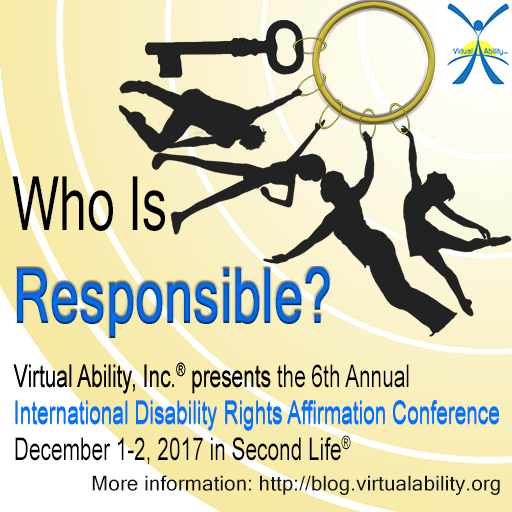
Virtual Ability, Inc.® presents the 6th Annual
International Disability Rights Affirmation Conference
December 1 and 2, 2017
in Second Life at
http://maps.secondlife.com/secondlife/Virtual%20Ability/54/170/23
Virtual Ability, Inc.® presents the International Disability Rights Affirmation Conference (IDRAC), which will take place December 1-2, 2017. This is an annual professional conference held online, that is free and open to the public. The conference will take place in Second Life® at The Sojourner Auditorium on Virtual Ability.
This year’s theme is “Who Is Responsible?” This theme is broad and open to interpretation by the presenters we invited to this year’s event. If past conferences are any indication, we look forward to lively discussions and information sharing among presenters and our very interested and interactive audience.
Below is an at-a-glance schedule of the presenters who will share their observations of the progress, benefits and challenges in disability rights in different parts of the world as applied to the current theme. We will provide more information about the speakers and their presentations as it becomes available. Note: All times are listed in US Pacific Standard Time.
IDRAC 2017 Schedule of Events
All times are in SLT/PST.| Friday, December 1 | ||||
| Time | Name | Title | Description | Transcript |
| 8:00 AM | Mr. Louis Olander | Beyond accountability: Moving towards answerability for students with disabilities | In the United States, accountability has broadly become the dominant paradigm for accommodating the needs of individuals with disabilities and for addressing equal education. While those paradigms have been useful in the past in promoting a modicum of equality, they have often prevented any movement beyond mere compliance. Moreover, accountability movements have elevated what Danforth (2014) calls technocracy, obscuring social justice arguments for meaningful inclusion. In this presentation I will talk about my dissertation research, in which I hope to help teachers outgrow technocratic, compliance, or accountability frames through teacher inquiry that is appreciative of their existing strengths and critical of structures that sustain exclusion. In so doing, I hope to promote what Patel (2015) terms answerability, reframing questions of what exactly educators are responsible for. | Louis Olander Transcript |
| 9:30 AM | Dr. Margaret Nosek | Access to Health Care and the Liberation of People with Disabilities | Current debate in the US about health care reform has not covered issues related to the well-being of people with disabilities. This presentation compares healthcare financing under the current US system versus a single-payer national health program from the perspective of people with disabilities and factors affecting their life options. | Margaret Nosek 1 Transcript |
| 11:00 AM- | Dr. David Wasserman | Who's Responsible for Inclusion? | I argue that both individual and collective efforts are necessary for meaningful accommodation. But I conclude that full inclusion is only possible through universal social welfare reforms that must be collective undertakings. | David Wasserman Transcript |
| 12:30 PM- | Dr. Margaret Nosek | Are We Empowered Yet? Definitions, Interventions, and Outcomes | The word "empowerment" is used very freely in advocacy, healthcare, and social services, but definitions and measures of it are rare. This interactive presentation invites audience members to name and prioritize elements and strategies that lead to the empowerment of people with disabilities. | Margaret Nosek 2 Transcript |
| 2:00 PM- | Dr. Amie O'Shea | Stories from young women with intellectual disability: Meanings of gender and disability | Amie O'Shea Transcript | |
| Saturday, December 2 | ||||
| Time | Name | Title | Description | Transcript |
| 6:30 AM- | Mr. John McArdle | Human Rights Under Attack: The struggle against cuts and austerity in the UK, 2010-2017 | John McArdle Transcript | |
| 8:00 AM- | Dr. Christopher McMaster | Advocate or Mechanic? The Role of the Citizen Practitioner in Social Change | This talk will explore the role the professional plays in the process of social change. How responsible is the professional, in their professional capacity, to act as an agent of change? Two terms will be used, advocate and mechanic. If it is true, as Gamsci asserts, that there is no such thing as neutrality, then the professional is faced with a clear choice: accept and thus defend the status quo, or continually question and challenge that status quo in their professional role. This apparently simplistic dichotomy will be open for discussion and challenge. The basis of this talk will be research undertaken at a mainstream high school and published as the book, Educating All: Developing Inclusive School Cultures from Within (Peter Lang). The role I assumed as researcher was that of the critical ethnographer—not there to simply observe the school culture, but to play an active role in helping to change it. Working with the most minoritized population of the school (students with so-called ‘special needs’), change happened, but only so much. I got to return to the school three years later in a different role and work with another part of the school population. I noticed that once an advocate for change was not there, the change process was affected. In Educating All, I identify five elements of inclusion. Maybe advocate was the most important? Maybe it needed someone to be responsible. | Christopher McMaster Transcript |
| 9:30 AM- | Katie Tastrom, MSW, Esq. | Diverse identities, diverse tactics: Bringing disability activist wisdom to all political movements | Disabled-led activism has been transformational in enhancing the rights and lives of disabled people, though we have an incredibly long way to go. As people with lived experiences of disability we have skills and talents that can be helpful in furthering the rights of other marginalized people, and it is crucial that we use these skills. We have multiple identities and even though we may be oppressed in some ways due to our disabilities, we need to always think about areas we are privileged and how to leverage those privileges to create change. This presentation will talk about why and how we can do this. | Katie Tastrom Transcript |
| 11:00 AM- | Dr. Sonya Freeman-Loftis | On Speaking and Not Speaking: Autism, Friendship, Interdependency | This collection of autobiographical fragments explores the subject of autistic voice. Juxtaposing moments when autistic communication is recognized and understood with moments in which it isn’t, this work of creative nonfiction examines ideological tensions between independence and interdependency, the potential lines (or lack of lines) separating friendship and support, and some of the inevitable problems that are created when one person speaks for another. The piece also explores the dangers that may arise when social systems and authority figures fail to recognize autistic voices. | Sonya Freeman-Loftis Transcript |
| 12:30 PM- | Dr. Carol Moeller | "We Are Not Disposable”: “Psychiatric”/Psycho-Social Disabilities and Social Justice | How does social justice for persons relate to psycho-social or “psychiatric” disabilities? I draw upon and theorize from my own experience – working to develop transformative ways of thinking and living with “psychiatric”/psycho-social disabilities. Investigating several different activist and service organizations, as well as voices and representations of people with “psychiatric”/psycho-social disabilities, I ask which are truly empowering. Following Tobin Siebers and Margaret Price, I critique the “ideology of ability” and its tendency to de-humanize people with “psychiatric”/psychosocial disabilities. I argue for expansive liberatory practices that embrace neurodiversity and work toward a world of social justice more enabling of human flourishing. I link Audre Lorde’s social justice vision to these concerns. People with “psychiatric”/psycho-social disabilities are such bodies that “do not fit” with the reigning “ideology of ability” (using Siebers’ terms). It is precisely in our not fitting that we reveal barriers, harms, injustices, moral-political insights, and need for revolutionary change. In reading and unpacking how we do not fit we can identify obstacles that point to blueprints for such changes. | Carol Moeller Transcript |
| 2:00 PM- | Dr. Anjali Forber-Pratt | Disability Identity Development | This presentation will explore the term “disability identity” and present current and ongoing research. The presenter will first situate herself within the disability rights and disability community, as a researcher with a disability. Disability occurs across the lifespan and is cross-cultural making it complicated to study. Additionally, the presenter believes that we must be inclusive in our definition of disability for this type of research. Disability is then defined broadly and including individuals with apparent or visible and/or less apparent or hidden disabilities across as many disability groups as possible (i.e., physical, intellectual, learning, mental illness). Disability identity is unique because disability often occurs in individuals who do not have others with disabilities around them. People with disabilities, then, shape an identity around a particular impairment or difference that their families, immediate circles and communities likely do not share. A coherent disability identity is believed to help individuals adapt to disability, including navigating related social stresses and daily hassles. By providing an overview of the existing models of disability identity, including seminal work from Carol Gill (1997), a description of how this body of work has informed the development of a new measurement tool of disability identity will also be discussed. | Anjali Forber-Pratt Transcript |
IDRAC 2017 Speaker Biographies
Biographies are listed in alphabetical order by last name.| Speaker | Biography |
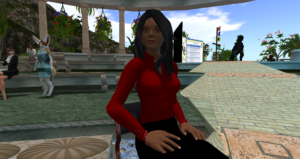 Dr. Anjali Forber-Pratt | Anjali J. Forber-Pratt, Ph.D., Assistant Professor in the Department of Human and Organizational Development at Vanderbilt University. Her research agenda adopts a social-ecological framework looking at issues related to identity development, school safety, social-emotional learning, the impact of gang presence and school climate particularly for individuals who are different in some way, with a large focus on disability. She presents regularly at state, national, and international conferences and is author on 16 peer-reviewed journal articles and several chapters. The American Association of People with Disabilities (AAPD) has also recognized her as an emerging leader within the national disability community. She was honored by the White House as a Champion of Change in 2013 and had an opportunity to participate in a roundtable discussion with President Obama about disability policy issues. |
| Dr. Sonya Freeman-Loftis | Sonya Freeman-Loftis is an associate professor at Morehouse College. She is the author of two books: Shakespeare’s Surrogates and Imagining Autism. Her work on autism is strongly influenced by her personal experiences as an autistic, while her work on Shakespeare is inspired by her deep and abiding and unyielding and boundless passion for Shakespeare. Her essays on drama and disability have appeared in many journals, and she currently serves on the editorial review board for Disability Studies Quarterly and Review of Disability Studies: An International Journal. In 2015, chapter three of Imagining Autism received honorable mention for the Society for Disability Studies Irving K. Zola Award for “best emerging scholar in the field of disability studies.” Sonya is also a wife and mother. Her husband is not jealous when she says that Shakespeare is “the light of her life.” |
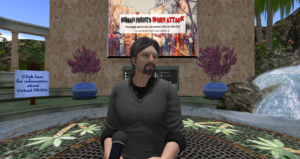 Mr. John McArdle | |
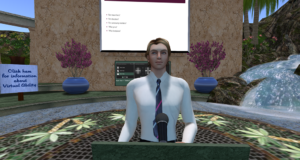 Dr. Christopher McMaster | Christopher McMaster is a writer and educator living in New Zealand. He completed a PhD in education from the University of Canterbury based on a critical ethnography of developing inclusive culture in an Aotearoa New Zealand high school. He designed a thesis topic that incorporated two of his passions—community activism and inclusion—and builds on the experience of 15 years as a teacher and 25 years as a parent. This study was recently adapted and published as Educating all: Developing inclusive school cultures from within by Peter Lang. This presentation draws upon that research, as well as subsequent work. Christopher received a Master of Arts from the University of London, before becoming a primary teacher in the UK. Returning to his native US he specialized in special education, earning a postgraduate diploma from the University of Alaska Southeast. Christopher was recently an Assistant Professor of Education, Special Education at Augsburg University, in Minneapolis, USA. He has since returned to his adopted home of New Zealand where he teaches in the local community, developing a model of alternative education within a mainstream high school. Christopher can be contacted at drchrismcmaster@gmail.com. |
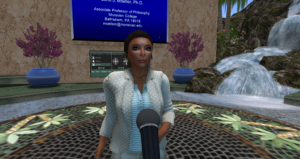 Dr. Carol Moeller | Carol Moeller, PhD, is associate professor of philosophy at Moravian College (Bethlehem, PA), where she currently teaches courses in ethics and philosophy. She is interested in the ethics and philosophy at the intersection of gender, race and disabilities, and has written extensively on social justice issues experienced by persons with intellectual disabilities. She was a Fulbright-Hays Scholar in Ghana in 2000, and was the Greenwall Fellow in Bioethics and Health Policy at Johns Hopkins University and Georgetown University (2001-2003). |
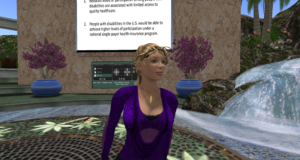 Dr. Margaret Nosek | Margaret (Peg) Nosek, PhD, is a Professor in the Department of Physical Medicine and Rehabilitation at Baylor College of Medicine and Senior Scientist at TIRR Memorial Hermann (Houston, TX, US). She is the Executive Director of the Center for Research on Women with Disabilities (CROWD). She holds an additional position as Adjunct Professor in the College of Nursing at Texas Woman’s University, Houston. Her doctorate is in rehabilitation research from the University of Texas at Austin. Dr. Nosek’s main research interest is on improving the health of women with physical disabilities, especially developing interventions disparities in reproductive health and access to healthcare services. She has conducted many large funded studies, several of which have taken place in Second Life. She is the author of numerous publications and the recipient of several prestigious awards, from organizations such as the American College of Physical Medicine and the Rehabilitation Psychology Division of the American Psychological Association. Dr. Nosek lives with spinal muscular atrophy, a severe congenital physical disability, and is a disability rights activist. She has worked closely with Justin Dart and others in the independent living movement. She has been honored as a “Disability Patriot” by the President’s Committee on Employment of People with Disabilities. |
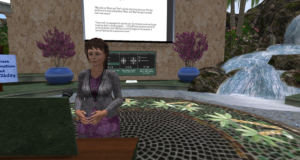 Dr. Amie O'Shea | |
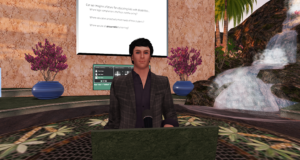 Louis Olander | Louis Olander is a doctoral candidate in the Urban Education program at the CUNY Graduate Center, and teaches graduate and undergraduate students about inclusive education and assessment of students with dis/abilities in the Special Education department at Hunter College. His research interests are in universal design, appreciative inquiry, and critical participatory action research. Previously, he taught special education in New York City, and now lives in Yonkers with his wife and two kids. His email is louis.olander@gmail.com. |
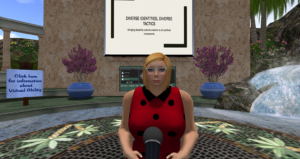 Ms. Katie Tastrom | Katie Tastrom is a disability lawyer, writer, activist, and sick person. Her work has been featured at Slate, Ravishly, and The Establishment, and she is a former content writer for The Body Is Not An Apology. She has a website at katietastrom.com, and she spends her days working to get disabled people in the US the benefits they are entitled to. |
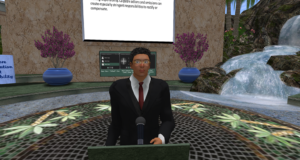 Dr. David Wasserman | David Wasserman, JD, MA, is at the Department of Bioethics, National Institutions of Health. Previously, he was Director of Research at the Center for Ethics, Yeshiva University (New York City, NY). He has written extensively on ethical issues in biotechnology, neuroscience, disability, reproduction, genetics, and health care. He is the co-author of the book, Disability, Difference, Discrimination. |
